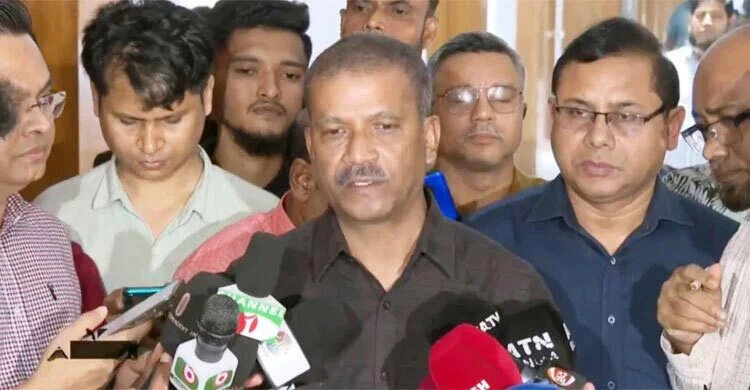Adviser: No abolition of death penalty before trials of fascists
Share on:

The question of changing the death penalty provisions in Bangladesh will not arise before the trials of the fascists are completed, said Law Adviser Prof Asif Nazrul has said.
He made the comment in response to questions from journalists after a meeting with UN High Commissioner for Human Rights Volker Türk on Tuesday.
Asif Nazrul said Volker Türk expressed full support for the current interim government and emphasized the need for an independent judiciary.
“I told him we are continuing our work,” he added.
Adviser Nazrul said Volker Türk raised the issue of the crimes tribunal and questioned whether the death penalty provisions could be abolished.
In response, he asserted: “The question of changing this does not arise before the trials of the fascists.”
Highlighting that the government’s journey towards elections has begun, the adviser said that a search committee has been formed for establishing the Election Commission.
During this time, UN High Commissioner for Human Rights Volker Türk addressed journalists, stating that he discussed the establishment of the rule of law and human rights issues with the law adviser.
He emphasized that these two matters are interconnected and urged the interim government to ensure human rights in its various reform initiatives.
Regarding the July deaths, he mentioned that a fact-finding committee is currently working on it, adding: “We are taking this matter seriously, and our headquarters is monitoring the entire situation.”
UN High Commissioner for Human Rights Volker Türk on Tuesday began his two-day Dhaka visit to discuss human rights issues.
Toufique Hasan, director general of the Public Diplomacy Wing at the Ministry of Foreign Affairs, received him at Hazrat Shahjalal International Airport.
Türk is scheduled to hold a number of meetings with senior officials and civil society representatives, among others.
During his visit, the high commissioner will meet Chief Adviser Dr Muhammad Yunus, said the UN office in Dhaka.
The UN rights chief will meet advisers for different ministries, the chief justice, the army chief and the heads of several reform commissions.

